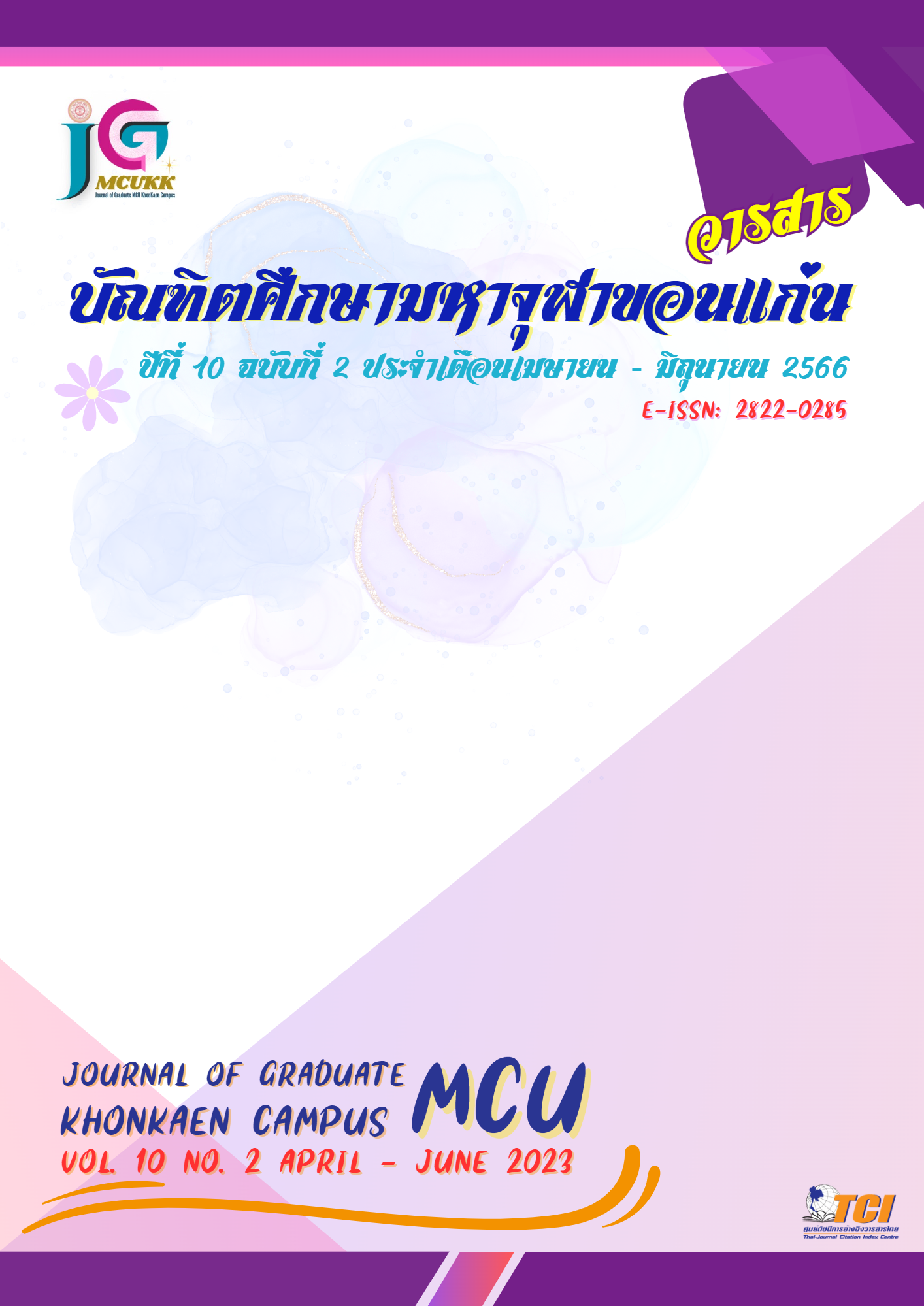A Study of Learning Achievement Using Micro - Learning Grammar Lessons Through Facebook Classroom for Grade 8 Students of Bansuankwan School, Uthai Thani
Main Article Content
Abstract
The primary objectives of this study were 1) to develop and assess the effectiveness of grammar micro-learning lessons delivered through a Facebook classroom, 2) to implement the lessons and to compare learning achievements between before and after studying the lessons, and 3) to investigate students' satisfaction toward the grammar micro-learning lessons through the Facebook classroom. The study was conducted with a group of 15 students from grade 8, selected through purposive sampling. Data was analyzed using descriptive statistics, a developmental testing (E1/E2) and a T-test dependent.
The findings revealed that:
1) the grammar micro-learning lessons, which consisted of 5 short videos and handouts, were efficient (E1/E2= 70.10/72.22), 2) students' learning achievements after studying the lessons through the Facebook classroom were significantly higher than before at the 0.05 level and 3) students' satisfaction of the use of grammar micro-learning lessons through the Facebook classroom was at the highest level ( = 4.73)
Article Details

This work is licensed under a Creative Commons Attribution-NonCommercial-NoDerivatives 4.0 International License.
References
Alexandra P. Marinskaya. (2020). Micro-Learning Efficiency for Foreign Language Teaching. European Proceedings of Social and Behavioural Sciences. 643-649. Retrieved 17 March 2022, from https://www.researchgate.net/publication/347417699_Micro-Learning _Efficiency_For_Foreign_Language_Teaching
Chaiyasad Kachensuwan. (2020). The Learning Achievement Development on Genetic Using Microlearning for Grade 9 Students. Research and Development Journal SuanSunandha Rajabhat University. 12(2), 137-147.
Hamed Mohammad Hosseini et al. (2020). Flipping Microlearning-based EFL Classroom to Enhance Learners’ Self-Regulation. Language Teaching Research Quarterly, 20(2020), 43-59.
Kwanchanok Puttchan. (2020). Micro – Learning. Retrieved 17 March 2022, from https://www.lib.ku.ac.th/2019/index.php/covid-19/1041-microlearning.
National Institute of Educational Testing Service (Public Organization). Reporting System of O-NET with Map. Retrieved 17 March 2022, from https://www.niets.or.th/th/catalog/view/3121
Office of the Permanent Secretary, Ministry of Education. (2015) Policy of the Minister of Education (General Daaphong Ratanasuwan). Retrieved 17 March 2022, from http://www.plan.cmru.ac.th/documents/nation/01002.pdf
Phontakorn et all. (2022). Development of Learning Activities Based on Micro Learning In the Civics. Culture and Social Life Course for Mathayomsuksa 2 Students at Taweethapisek School, 28(1), 63-77.
Sirilak Boonmapan et all. (2564). The Development of Microlearning Lessons on Social Networks Based on the Constructivist Approach to Promote The Analytical Thinking of Matthayom Sueksa 6 Students, 16(21), 65-78. Retrieved 17 March 2022, from https://so01.tci-thaijo.org/index.php/ectstou/article/download/249675/168470/910108
Statista 2022. (2022). The most spoken languages worldwide in 2022. Retrieved 17 March 2022, from https://www.statista.com/statistics/26 6808/the-most-spoken-languagesworldwide/#:~:text=In%202022%2C%20there%20were
%20around,at%20the%20time%20of%20survey.
Wesley Chai. (2020). microlearning (microtraining). https://www.techtarget.com/whatis/definition/microlearning.

